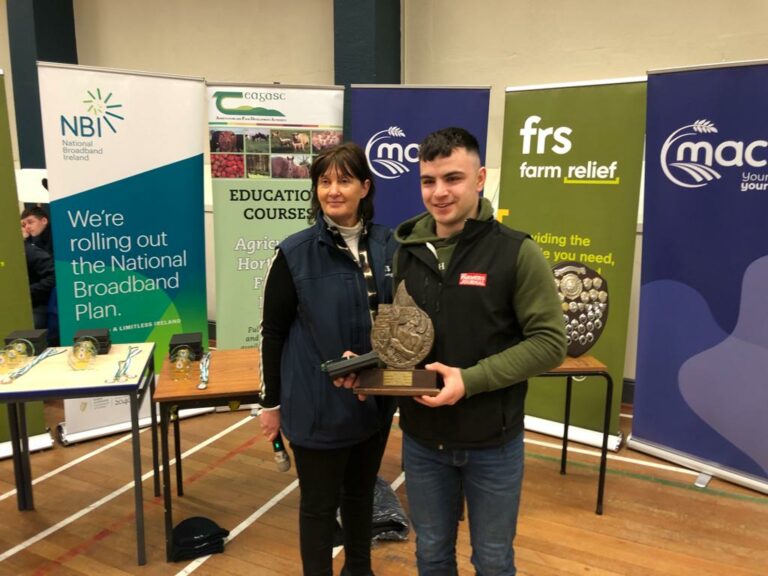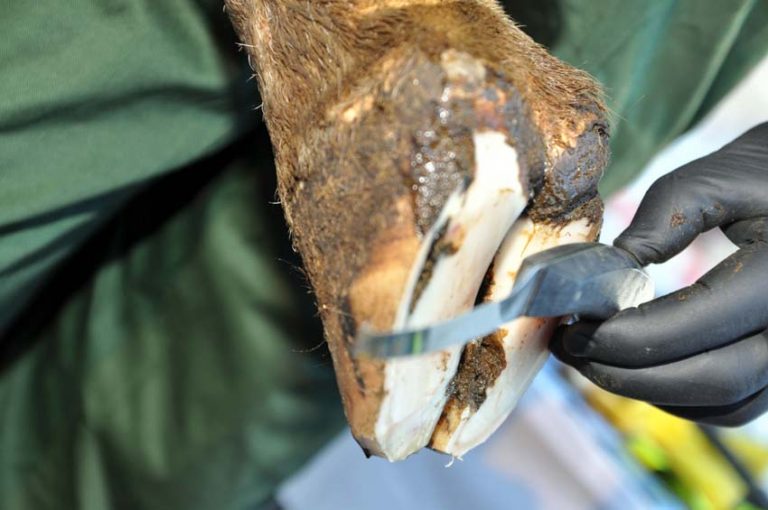Summer mastitis is most common from June to mid – September. Weather conditions mean some years it is more prevalent than others, however, farmers must still watch out for symptoms and treat it as soon as possible.
Summer mastitis is a bacterial infection that is most common among dry cows and maiden heifers. Caused by a combination of bacteria, it is spread by insects, namely the sheep headfly. Animals that are most at risk are those grazing in fields that are damp with high hedges or near wooded areas in humid weather.
Symptoms of Summer Mastitis
Symptoms of summer mastitis include swelling of the infected quarter. Once drawn there may be pus/discoloured discharge. Infected animals appear stiff, particularly in the back legs, and slow to move. The cow/heifer might be lying away from the group, sometimes on their side in order to take the pressure off the infected area. Farmers may also notice that the affected animal may have a lack of appetite, a temperature or be dehydrated. As the condition progresses, the animal may lose weight. Also, in-calf cows who get the infection are at a higher risk of aborting.
Farmers need to be aware that summer mastitis is highly contagious. Flies are attracted to swollen quarters and will then travel to other animals spreading the infection.
To notice these symptoms, it is recommended to herd animals daily. Farmers should try to look at all four teats on each animal, from a safe distance. If you see an animal kicking, it may be due to flies gathering around the teat tip causing irritation. Any swelling or abnormality should warrant immediate attention.
Farm Safety Comes First
Remember, safety comes first. If a cow/heifer are showing symptoms, bring them to a crush for closer inspection. It would be helpful to have an extra set of hands as animals with illness may be aggressive. Mastitis can be painful, cow/heifers may kick while being inspected.
Treatment Options
Treatment of a confirmed case depends on how advanced the infection is. With mild cases, the infection can be treated with antibiotics and possible use of intramammary tubes. Severe cases will also need a course of anti- inflammatory drugs. In all cases of summer mastitis, the affected quarter needs to by frequently stripped out to reduce toxin build up. Contact the local vet immediately and put the affected animal into isolation to stop the spread to others. If an animal is treated, be sure to log all antibiotics used. Farming app Herdwatch is a handy tool to help keep track of this.
Like all illnesses, prevention is better than cure. There are a number to steps farmers can follow to prevent summer mastitis getting into a herd. Firstly, look at the fields available and keep animals in open, dry paddocks if possible. Consider using a pour-on product with fly repellent. Some farmers prefer using fly tags, these look like ear tag but has a fly repellent in it. Teat seals are another option or application of Stockholm tar around the teats. Some treatment may be needed more frequently than others, we recommend consulting the local vet and finding a preventative that best suits the needs of the farm.
Herdwatch Can Help Farmers
Herdwatch is an easy-to-use app that allows farmers to spend less time on paperwork. With features including Herd Management and Bord Bia Compliance, farmers can record all treatments and antibiotics given to animals on the app and have easy access to withdrawal periods. For more information on Herdwatch, visit herdwatch.ie.




